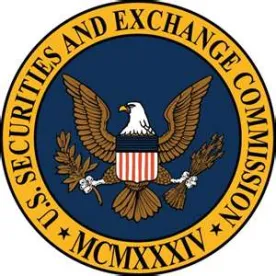On September 29, 2021, the Securities and Exchange Commission (SEC) released a notice that on September 16, 2021, the New York Stock Exchange (NYSE) filed a proposal seeking approval of a proposed amendment to its shareholder approval rules. The NYSE’s latest proposed amendment to Rule 312.07 would clarify long-standing confusion about the treatment of abstention votes for certain security issuances that require shareholder approval by aligning the NYSE rule with a NYSE-listed company’s governing documents and applicable state corporate law, which is consistent with the Nasdaq Stock Market LLC’s (Nasdaq) practices.
Treatment of Abstentions under Current Rule
Rule 312.07 governs the treatment of shareholder votes and abstentions where shareholder approval is required under certain circumstances. Specifically, Rule 312.07 applies to shareholder approval of securities issuances related to equity compensation plans under Rule 303A.08 and other issuances under Rule 312.03 (i.e., certain related party transactions, stock issuances above 20% of a company’s outstanding shares, and issuances that will result in a change of control of the issuer).[1] However, Rule 312.07 only applies to proposals for which the NYSE listing rules independently require shareholder approval and not to other types of proposals, such as shareholder proposals.
Rule 312.07 provides that a majority of votes cast is required for shareholder approval of such proposals. While the rule is silent as to abstentions, the NYSE has historically advised companies to treat abstentions as votes cast for the purposes of Rule 312.07. This guidance has the practical effect of requiring issuers to treat abstentions as votes “against” a proposal for matters where the NYSE rules separately require shareholder approval. Therefore, if a company (i) has a “votes cast” standard in its charter or bylaws that would apply, (ii) is a NYSE-listed company, and (iii) is required to obtain shareholder approval under Rules 303A.08 or 312.03, then an abstention would be counted as a vote cast “against” such proposal. Pursuant to this practice, relevant proposals are approved only if the votes cast in favor exceed the aggregate of votes cast against the proposal plus abstentions.
By contrast, the Delaware General Corporation Law, Model Business Corporation Act, and Louisiana Business Corporation Act[2] do not treat abstentions as “votes casts,” and many companies similarly specify in their governing documents that abstentions are not considered “votes cast.” Therefore, the votes in favor only need to exceed the votes cast against for such proposals to succeed. Further, while Nasdaq does not define “votes cast” in its rules, it has provided guidance that a company should treat votes cast in accordance with its governing documents and applicable state law, which differed from the NYSE’s past guidance. Not only does the NYSE’s historical treatment of abstentions in the Rule 312.07 context make it harder for such proposals to prevail, it has caused confusion for many NYSE-listed companies and their shareholders as to the applicable voting standard.
Proposed Changes
The NYSE’s proposed rule change would align the voting standard under Rule 312.07 with a NYSE-listed company’s governing documents and applicable state corporate law, which is consistent with current Nasdaq guidance. The NYSE is seeking the SEC’s approval of the following change to Rule 312.07 (shown in bold):
Where shareholder approval is a prerequisite to the listing of any additional or new securities of a listed company, or where any matter requires shareholder approval, the minimum vote which will constitute shareholder approval for such purposes is defined as approval by a majority of votes cast on a proposal in a proxy bearing on the particular matter. For purposes of the foregoing, a company must calculate the votes cast in accordance with its governing documents and any applicable state law.
This change will not prescribe a particular interpretation of “votes cast” under Rule 312.07, but rather, like Nasdaq’s treatment of votes cast, would allow a NYSE-listed company to calculate votes cast in accordance with its governing documents and applicable state law. The NYSE hopes this change will reduce confusion over how to calculate votes cast and ensure that shareholders understand the implications of choosing to abstain on a proposal subject to approval under Rules 303A.08 and 312.03. This change will also align the treatment of votes cast under the NYSE rules and guidance with other proposals on which a NYSE-listed issuer’s shareholders vote.
Public comments on this proposed rule change are due within 21 days after its publication in the Federal Register, and the SEC generally must either approve or disapprove of the proposed rule change within 45 days of publication.
Despite this much-needed clarification, the calculation of votes under the NYSE and Nasdaq rules, state law, and a company’s governing documents will remain a highly technical matter. As such, companies are encouraged to seek guidance from counsel regarding the applicable voting standards and the interplay between the relevant exchange’s rules, state law, and a company’s governing documents for the purposes of calculating shareholder votes.
Rachel Solino, an associate in the Corporate Practice Group., contrbuted to this article.
[1] As previously reported, on April 2, 2021, the SEC approved the NYSE’s amendments to Rule 312.03 of the NYSE Listed Company Manual regarding the shareholder approval rules for certain security issuances to related parties and those above the 20% threshold, and clarified the definition and procedure for audit committee approval of related party transactions under Rule 314.00. Subsequently, on August 19, 2021, the NYSE proposed further amendments to its related party transactions rule.
[2] See DGCL § 216(2), MBCA § 7.25(c) and Comment 4 to MBCA § 7.25, and La. R.S. § 12:1-725(C).





 />i
/>i

